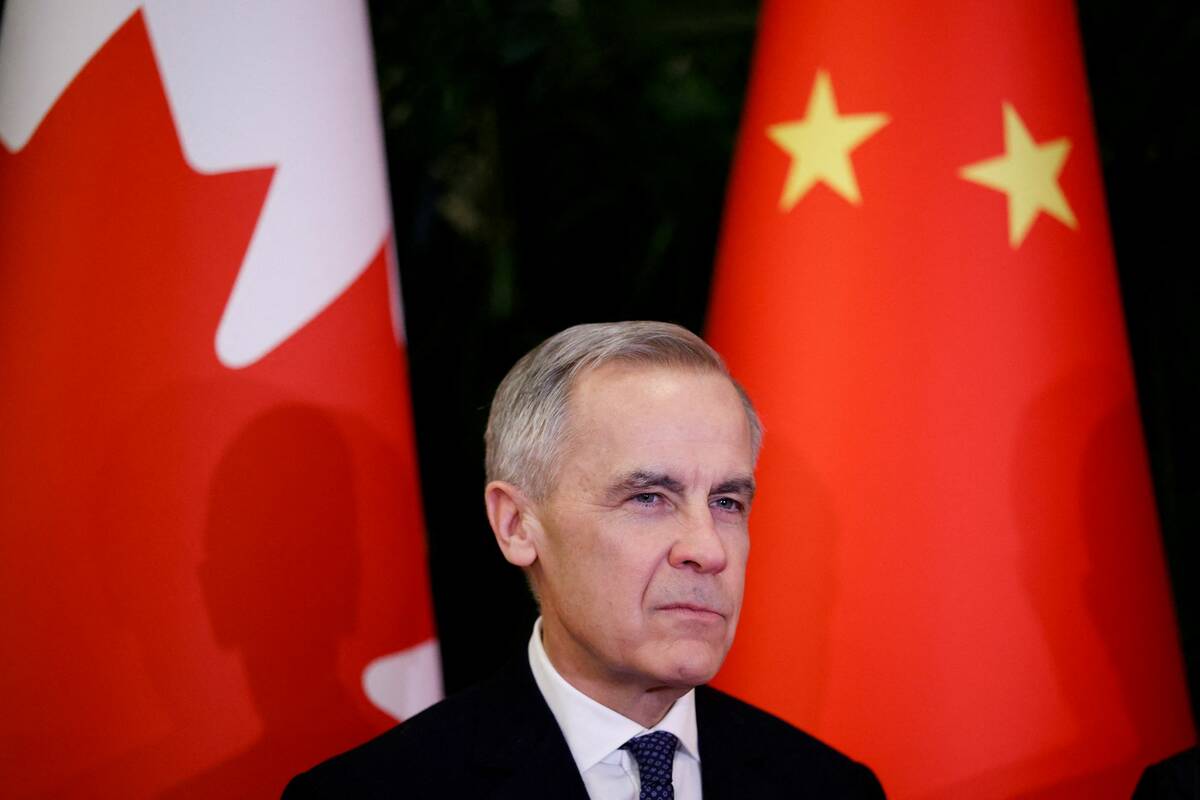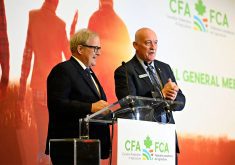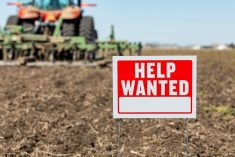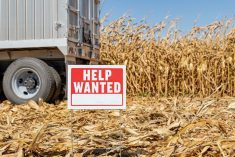Canada’s agriculture sector is waiting on details of a federal response to the COVID-19 coronavirus pandemic as its concerns pile up.
Agriculture and Agri-Food Canada has stated it understands “the importance of a stable labour force enabling Canadian food supply, and (is) committed to giving Canadians and businesses the support they need” but is not yet offering further details on support for farmers.
A joint emergency response committee, involving key industry and government stakeholders, has been formed to help respond to the COVID-19 outbreak.
Canadian Federation of Agriculture (CFA) president Mary Robinson, who sits on that committee, said there is concern over how an interruption of the flow of goods and people resulting from COVID-19 will impact the sector.
Read Also

China deal a positive signal for farm policy
CFA President Keith Currie said Mark Carney’s trade trips — to China and elsewhere — could be signs of his commitment to securing deals for Canada and a good sign for the agricultural sector.
“As people make decisions as to what they’re going to plant, you know, maybe it’ll mean that their decisions are that lower-value, less labour-intensive crops will be planted,” she said.
Agriculture Minister Marie-Claude Bibeau said in a statement the government is working around the clock to respond to health and economic impacts of the global pandemic.
“The continued movement of agri-food products and inputs, both at home and abroad, and the ongoing delivery of essential food-delivery services, are essential to Canada’s plan to manage COVID-19,” she said.
No clarity has thus far been provided on what qualifies as essential food-delivery services.
Grain Growers of Canada, for one, said it’s monitoring three specific areas: access to inputs needed to get crops in the ground this spring; the continued movement of goods; and assurances enough labour will be available.
Many concerns have been raised over access to labour, given the government’s decision to close Canada’s borders, effective Wednesday, to foreign nationals from all countries other than the U.S.
That decision calls into question the immediate future of the Temporary Foreign Worker program and the Seasonal Agricultural Worker program.
“That’s a big concern; putting the crop in the ground is just around the corner,” Robinson said.
Lobbying is underway for some concessions on the programs. Ontario Agriculture Minister Ernie Hardeman’s office said he has been “actively engaged” with federal officials in trying to find solutions.
“We recognize that seasonal agricultural workers are critical for Ontario’s farmers and food processors,” said the statement, which added his office is in daily communication with Bibeau’s.
CFA is circulating surveys to continuously monitor concerns among its membership.
“Just like government not anticipating the temporary foreign worker implications for agriculture, there’s things that we’re not thinking of right now that are going to crop up,” Robinson said.
“We’ll continue to bring that information from our members directly up to the ministers’ table. And hopefully, all that information will help form good decision-making and make the best of a bad situation for everybody.”
The federal cabinet as a whole needs to “recognize that… beyond actually controlling and fighting COVID-19, most likely the top priority for Canada should be food.”
— D.C. Fraser reports for Glacier FarmMedia from Ottawa.
















